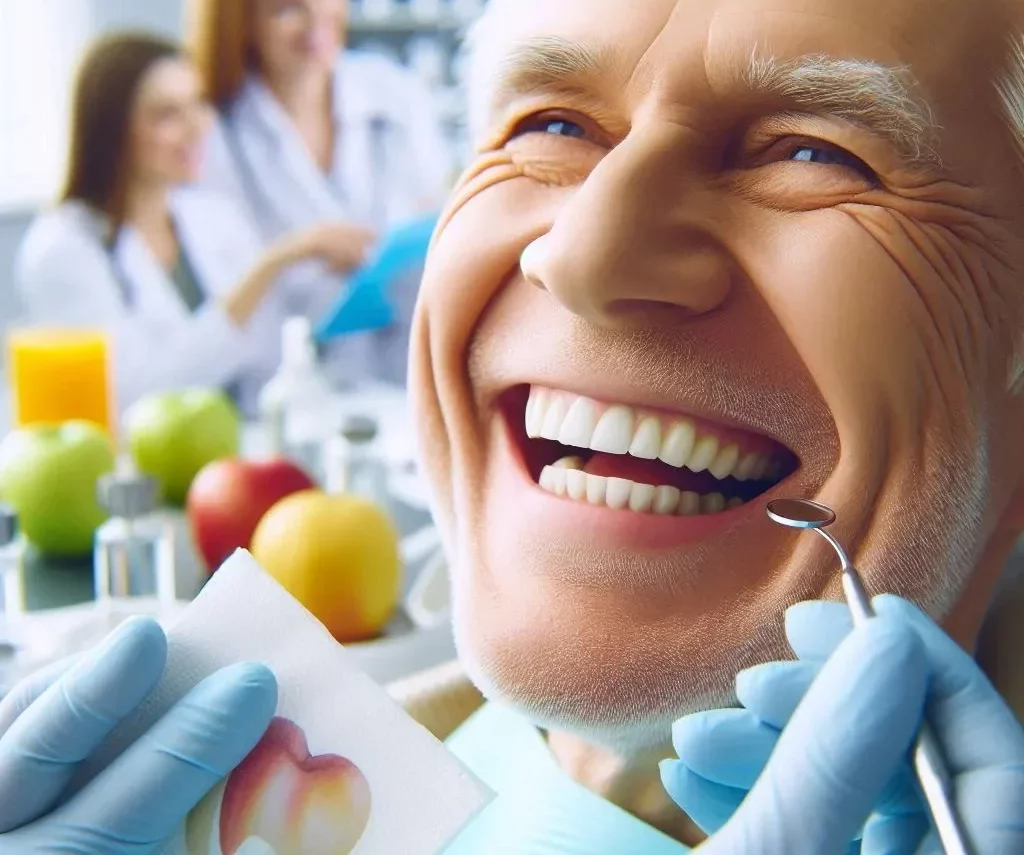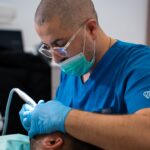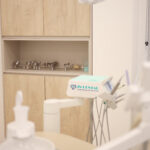
Maintaining a healthy smile not only affects your physical but also contributes to your mental health. To help you achieve it, we have highlighted a few key tips:
Regular Brushing and Tooth Cleaning
The recommended minimum is twice a day (in the morning after the first meal and in the evening after the last meal). Teeth should not be brushed immediately after eating due to the change in oral pH balance; it is better to wait half an hour.
Use of Dental Floss
Regular use of dental floss reduces the risk of cavities in those hard-to-reach places (interdental spaces, i.e., the space between two adjacent teeth) for a regular toothbrush.
Proper Brushing Technique
Regular brushing of teeth is crucial for maintaining oral hygiene, but it is not enough. Proper technique ensures optimal removal of food residues and plaque without damaging the surrounding tissue. Proper technique includes brushing teeth with longitudinal movements on the axial surfaces of the teeth in the direction from the neck to the crown of the tooth. Chewing surfaces of the molars should be brushed with circular motions. Throughout the brushing process, excessive pressure should not be applied.
Healthy Diet
This includes a diet rich in proteins, fruits, and vegetables. What should be avoided are carbohydrates, which contribute the most to the development of cavities. Also, soft foods should be avoided, and firm foods that allow for the self-cleaning of teeth should be emphasized.
Elimination of Harmful Habits
Smoking, consuming large amounts of coffee, carbonated and citrus drinks, as well as excessive alcohol consumption, directly affect your oral health. Besides the increased risk of cavities, these harmful habits also increase the likelihood of surrounding tissue diseases.
Regular Dental Check-ups
The recommended interval between two visits to your dentist is 6 months. Regular check-ups should be attended even if you do not have any issues. It is also recommended to regularly remove tartar and soft deposits every 6 months (unless advised otherwise by your dentist).
Use of Different Types of Mouth Guards
Depending on the patient’s needs, it is possible to create different types of mouth guards. The most common are hard guards to prevent bruxism (teeth grinding, usually at night, when these guards are worn), as well as sports guards to protect teeth in contact sports. The use of these guards prevents injuries and damage to the teeth and surrounding tissues.
Timely Education
To prevent all problems related to your teeth and oral environment, it is extremely important to educate yourself about potential risks and factors that contribute to both the deterioration and maintenance of your oral health.




